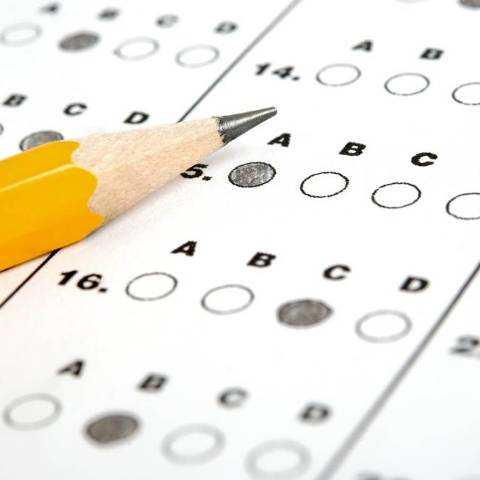

This blog was co-authored by Sam Moss ('63), dean of college guidance.
As almost everyone is by now certainly aware, students will begin taking the new PSAT and SAT this year. Freshmen, sophomores, and juniors will take the new PSAT on Wednesday, Oct. 14. Juniors will take the first New SAT in March, after already having had the opportunity to take the old SAT in January. Darlington's faculty members have already begun preparations to assist students in preparing to take the new test.
Our first step – and a most unusual one – took place during the week of faculty orientation, when teachers themselves took the new SAT. Members of the English, math, history, science and world languages departments spent an afternoon under timed test conditions taking the sections of the SAT which were related to their subject areas.
We believe that this was an important exercise for several reasons. First of all, we have a professional responsibility to understand the nature of the standardized tests that our students must take for college admissions purposes. While we certainly do not subscribe to the notion of “teaching to the test,” it is important for us, as teachers, to be familiar with the course content on which our students are being tested. By taking the test ourselves, we have a better sense of where there may be strengths or weaknesses in our curriculum. By knowing that, we can further enhance the quality of our teaching.
After taking the test ourselves, members of the faculty had some interesting observations (presented below). In the coming weeks, our website will feature several blogs that highlight what to expect from the new test.
Craig Schmidt, chair of the history department
"My observation is that the new SAT, like the new AP history tests, is trying to measure skills based on content rather than content alone. The students are asked to use their knowledge to perform a skill. In a history class, this means that we need to stress reading and interpreting sources rather than [merely] memorizing particular facts."
Crystal Cleveland, Spanish teacher
"My students will practice this SAT reading section the third week of school and compare it to a similar AP Spanish Literature Exam reading section. After taking the new SAT reading section myself, I am confident that students in my course will be well prepared to tackle the new format."
Yensen Lambert, chair of the world languages department
"I was very pleased to see charts and chart interpretation questions on the SAT. The work my students do in my class will truly prepare them to read authentic documents and interpret charts on the SAT."
Chad Woods, chair of the math department
"We did not encounter anything that we do not cover in our curriculum. It was hard to predict the old SAT material because it was rarely based on concepts; it was based on if the test could trick the student or not."
Beth Wilson, chair of the English department
"The new SAT essay asks students to conduct an analysis, usually of an argument. In the sophomore year, our students learn analysis for much of the first semester in English 2, and then they combine that with study of argument in the second semester. These units lay the groundwork for more advanced work with analysis and argument in the junior year. The fact that the SAT now asks for those skills (as opposed to a formulaic and empty essay, as it did before) will complement our program instead of competing with it."
Owen Kinney, chair of the science department
"Moving forward, our science teachers are going to build more analysis opportunities for our students, with an even greater emphasis on the interdisciplinary connections with science."